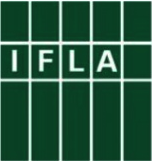Inquiry as an approach to learning - Phase 2
- Great School Libraries

- Mar 9, 2020
- 4 min read
Updated: Mar 8, 2021
I am delighted to be heading one of the second aims for the next phase of the Great School Libraries campaign. This will be focusing on an Approaching Learning through Inquiry.
As you may well already know I have become increasingly interested in the role of the school librarian as information professionals; in teaching information literacy through inquiry. This strand allows us to explore the role of the school librarian within inquiry throughout the curriculum. As such, I am delighted that the Great School Libraries working group has decided to endorse the IFLA (International Federation of Library Associations and Institutions) School Library Guidelines as our standard for school libraries which provides us with a concise definition of what a school library is:
“A school library is a school’s physical and digital learning space where reading, inquiry, research, thinking, imagination, and creativity are central to students’ information-to-knowledge journey and to their personal, social, and cultural growth. This physical and digital place is known by several terms (e.g., school media centre, centre for documentation and information, library resource centre, library learning commons) but school library is the term most commonly used and applied to the facility and functions”
This definition provides us with a clear vision for what our school libraries and librarian should be aspiring to, and the accompanying Guidelines and associated workshop materials for implementing them provide us with powerful tools for realising this vision.
Central to this definition is inquiry, both as a stance and as a process, which provides a clear link to this Learning through Inquiry aim.
Furthermore, the IFLA School Library Guidelines is rooted in the IFLA/UNESCO School Library Manifesto (1999), which views the school library as "providing information and ideas that are fundamental to functioning successfully in today's information and knowledge-based society, and equipping students with life-long learning skills and develops the imagination, enabling them to live as responsible citizens".
The IFLA/UNESCO School Library Manifesto (1999), has been updated for the IFLA World Library and Information Congress 2020 in Dublin (15-21 August) following extensive international consultation, and we eagerly anticipate its publication.
Over the next 18 months, we hope to focus on the following:
Research
We are aware, as a group, that there have been many studies carried out about the impact school librarians have when working collaboratively within the curriculum. We intend to try and bring it together, in order to provide evidence of impact for school librarians to share. Your help is always welcome and if you ever come across any relevant studies we would be grateful if you could share them with us at our email address info@greatschoollibraries.org.uk
Framework for Inquiry
In this phase, we will be focusing on FOSIL (Framework Of Skills for Inquiry Learning) as a suggested model for school librarians to support inquiry throughout the curriculum. We are aware that there are other frameworks out there and wholeheartedly support any school librarian using whatever they feel best for them. An overview and a brief history of FOSIL, along with some other models, may be found on CILIP ILG's Models & frameworks page.
However, we feel that we are best able to support school librarians if we just focus on one. We will be working closely with The Fosil Group whose website already has nearly 200 members from across the world including school librarians, teachers, educators and academics. Their main aim is to share their knowledge and support each other in creating resources freely shared under CC BY-NC-SA 4.0. We hope that you will find this useful and join in this learning journey with us by signing up to the FOSIL forum.
Training
School librarians
In collaboration with CILIP SLG and SLA we will be looking at what training is currently on offer to support school librarians who want to start the journey with inquiry across the curriculum. We hope that this work will highlight the vast amount of training already available but also help us to discover areas of training need. This will then lead to opportunities to work with our partners to provide courses that will support and encourage relevant CPD.
We are particularly interested in looking to prove online courses and webinars where we can. We are also planning to provide an online manual and webinars on how to access and use FOSIL.
SLT and teachers
We are very aware that one of the barriers to school librarians working within the curriculum is the lack of understanding from senior leaders so our training will also look to include talks to SLT about the role and value of the school librarian which can either be delivered by school librarians themselves or with support if needed. We also hope to provide talks that can be used at INSET days to help teachers and librarians work more closely together. This will also include training for teachers in using FOSIL too.
Gathering data
It is important that we continue to expand our rich data collection which we have already started through our Library Insights blog and case studies. You may have noticed that we have recently split our case studies into three different categories and will not be surprised to read that I am particularly interested in your Learning through Inquiry case studies. Please consider writing for us about any research-based collaborative lessons you have recently carried out to add to our ever-expanding data. To find out more please email info@greatschoollibraries.org.uk.
The Future
We hope to provide a future for school librarians with a collective voice. We hope that you will join us on this journey ensuring that school librarians now and in the future have a role to play within our education system, within our schools and within our curriculum.
Elizabeth Hutchinson, Vice-Chair GSL committee and member of CILIP SLG committee








Comments